Diet, agriculture and environment: what’s the connection?
Consumers are increasingly concerned with sustainability and quality in their choice of food products. These are considered to be a crucial part of the ecological transition and, from ongoing tendencies, it is clear that ever greater numbers are concerned about the effects of diet on our wellbeing and the repercussions of food production and distribution processes on the environment.
Consumers therefore have more trust in companies producing healthy foods using methods that are respectful of the environment, hoping that such producers will play an active role in food information and education, guiding us towards healthy and sustainable options.
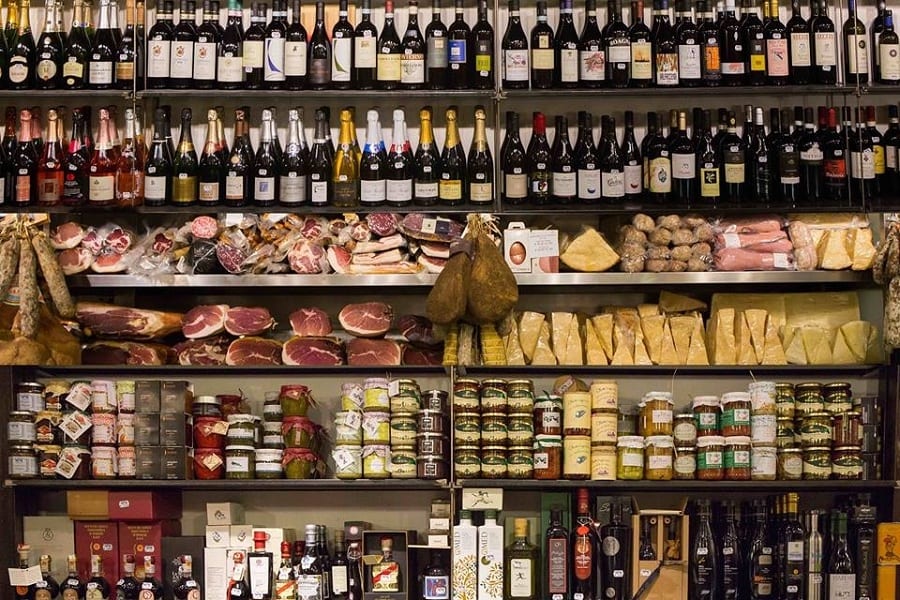
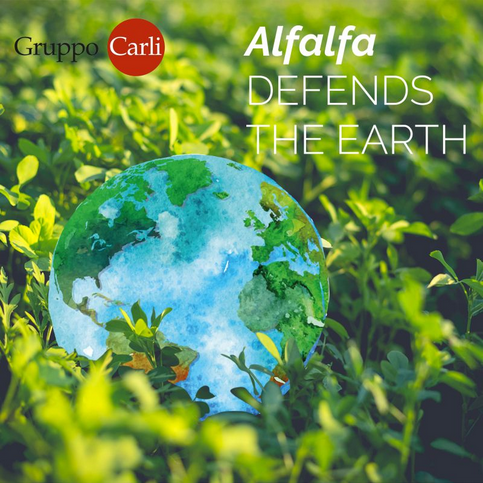
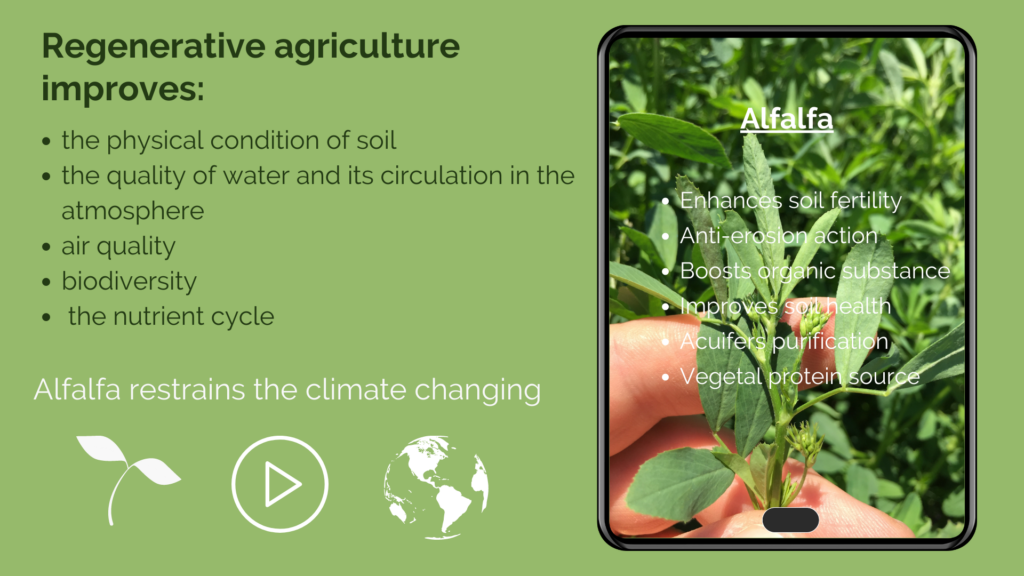
Beyond sustainability, towards regeneration
From the dawn of time, the purpose of agriculture has been to produce food that is nutritious, safe and in sufficient quantity, using the natural resources of the planet – which are often exploited indiscriminately.
Today we also need to consider the needs of the environment: climate change has a major effect on agricultural yields.
Statistics show that the global food system currently emits approximately 25% of greenhouse gases annually (of which 12.04% is from agriculture), causes about a third of soil acidification and is responsible for most of the eutrophication of the world’s surface water.
Agriculture may be a solution
With Regenerative Agriculture – the soil is the base, a body of over 25 multidisciplinary scientific studies, international researchers explored the premises of the current food production system and food security from the perspective of the regeneration of natural resources.
The terms sustainable agriculture and regenerative agriculture are often used interchangeably, but this is not the case.
The former refers to farming methods that have no negative effects on the environment and a positive impact on society.
The latter, however, refers to the crucial need to remedy soil health and rebalance the water and carbon cycles, i.e. grow food while allowing nature to rebuild its natural resources. (Rodale Institute)
The importance of producing food within the planet’s capacity is increasingly recognized in national and international policies, as is evident from the EU’s Circular Economy Action Plan, the Paris Agreement on climate change and the new Common Agricultural Policy.
Regenerative agriculture with alfalfa
For Gruppo Carli, sustainability is a defining characteristic, a value system based on respect for nature and the planet, ongoing for three generations.
It is the land – the soil – that provides crucial ecosystem services for the environment. Organic matter in the soil constitutes the world’s largest store of carbon and plays an essential role in the fertility of agricultural systems, supporting the growth of plants and regulating the cycles of nutrients and water.
The most salient characteristic of alfalfa is that it assimilates atmospheric nitrogen and, through the symbiosis of roots and rhizobia bacteria, fixes it in the soil, fertilizing the land. At the same time, it reduces the risk of contamination of the water table with nitrogen and absorbs large amounts of carbon dioxide.
These natural properties of alfalfa make it a pioneering crop in soil regeneration and the protection of air and water.
Over several decades of growing alfalfa, Gruppo Carli has determined that inadequate land maintenance leads to irreversible damage to agriculture and the environment: soil erosion, landslides and the loss of biodiversity have negative consequences on several levels, economic, social and health, as well as the environment.
Due to its combination of environmental, agricultural and economic advantages, we can confirm that alfalfa is a key crop for the rehabilitation of sustainable agricultural systems for the future; an important component for improving farming, which can not only enhance the sustainability of the food production chain, but also help the soil recover.
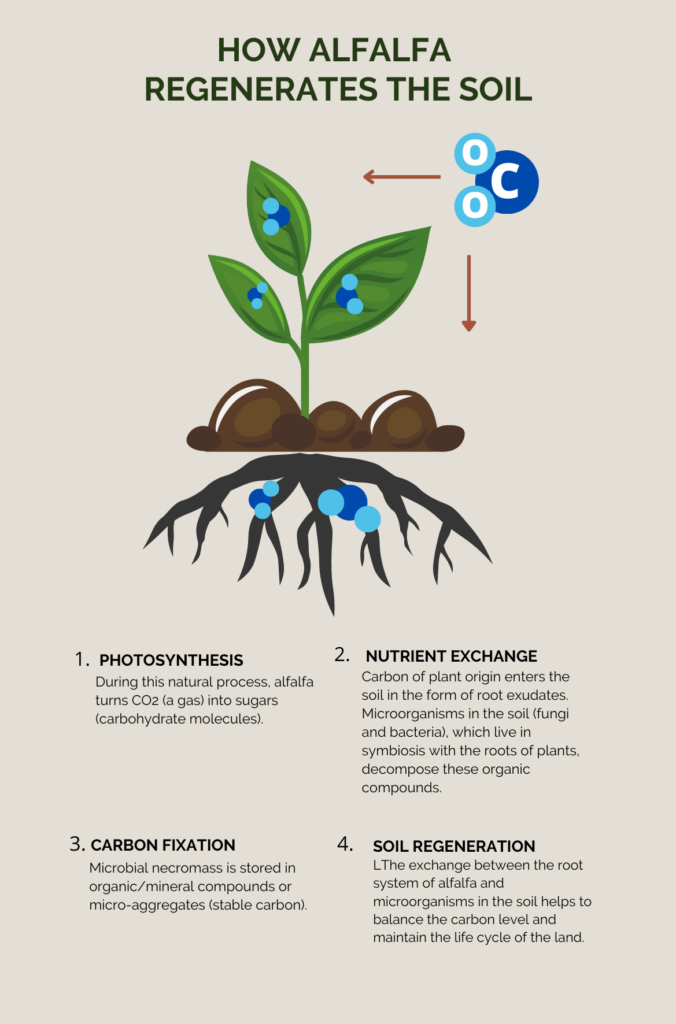
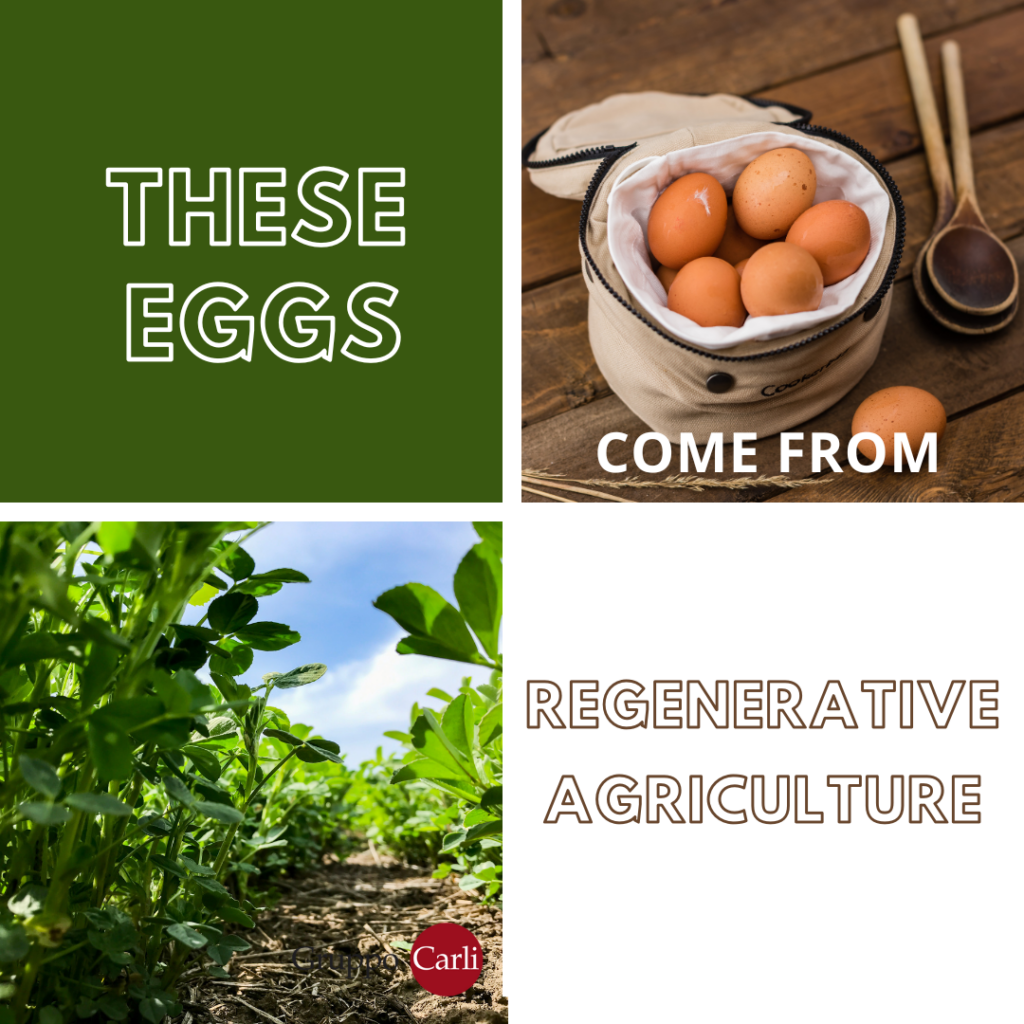
Agriculture that regenerates the planet’s natural resources is possible.
At Gruppo Carli we’ve been doing it for over 60 years.
The Gruppo Carli companies are active members of AIFE, the Italian Dry Fodder Association, which promotes the Italian production of alfalfa. This helps the livestock sector to increase its sustainability and the animal feed industry to reduce its environmental impact.
Thanks to today’s economic and social dynamics, agriculture is now closer to consumers, who can access information about the nutritional benefits and environmental impact of the products they choose, thus having a decisive influence on trends in food production.
References:
https://www.climatewatchdata.org
https://rodaleinstitute.org/it/
https://www.climatefarmers.org/https://www2.deloitte.com/it/it/pages/about-deloitte/articles/cambiamento-climatico-questione-piu-urgente-da-affrontare-nel-2023.html
https://www.agrifood.tech/sostenibilita/agricoltura-rigenerativa-nuova-vita-al-suolo-per-produrre-in-modo-sostenibile/
https://www.onuitalia.com/2023/02/10/unido-10/
https://terraevita.edagricole.it/economia-circolare/carbon-farming-agricoltura-italiana/
https://www.arapiemonte.it
https://www.reteclima.it/nature-positive-un-mondo-equo-a-zero-emissioni-e-a-favore-della-natura/
https://www.nature.org
https://www.sciencedirect.com/science/article/pii/S1617138122001261?via%3Dihub

